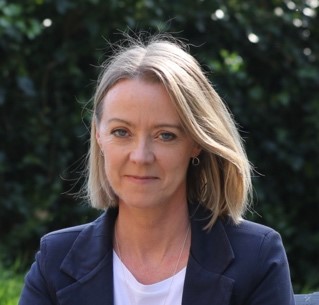Charlotte Fisher, Masters Student in Applied Positive Psychology and Coaching Psychology at the University of East London
If you are a stroke survivor, between the ages of 30 and 55 years meeting the criteria listed below, and you are interested in sharing your story, I would love to hear from you. Please email Charlotte Fisher at u2203182@uel.ac.uk
Hi, my name is Charlotte Fisher. I am student at the University of East London studying for a MSc in Applied Positive Psychology and Coaching Psychology. I am also a stroke survivor.
I’m really interested in how some stroke survivors positively find new meaning in life after stroke and flourish in new and different ways following their trauma. I am particularly interested in the role that hope plays at different stages of the post stroke journey.
I’m looking to recruit between 8-12 individuals to take part in my study, which primarily involves an on-line interview lasting around 90 minutes.
To be eligible take part you will have suffered an ischaemic or haemorrhagic stroke in the last 5 years (since January 2018). You will also identify as having experienced some level of psychological growth since your stroke in one or more of the following areas: personal strength, relating to others, new opportunities, appreciation of life, and spiritual or existential growth.
If this sounds like you, and you would like further information please contact me at my university email address: u2203182@uel.ac.uk

Charlotte Fisher, Masters Student in Applied Positive Psychology and Coaching Psychology at the University of East London
Hi Chlodog, thanks for letting us know.
Just so you are aware I post these opportunities on behalf of researchers (to also make sure they’re clear for everyone reading them), but these trials are not organised by Stroke Association, so your interest will go straight to the researcher who will be in touch.
This means we can’t take responsibility for them but please do post any comments or feedback on here, which I’ll see and be able to take note of!
All the best, Dan
Not my philosophy @Pontwander 
We all approach the world from a set of beliefs & filters that affect evaluation of salience, motivation, acquisition of competencies etc
Id say hope and its absence is a major catalytic in causal chains
A personal 2¢
@Stroke_Research I don’t fit the age profile althogh this is a theme I’ve been conscious of in many fora and often raise in dialogue during ‘cafes’ happy 4 u 2 pass on w/ caveats or not
2 Likes
Quite a negative post again. Hope is an optimistic word, as Stroke Survivors we can’t have any definite outcomes or outlooks but we can do things that we “hope” will tip the balance in our favour.
Many of us are having a tough time adjusting to what has happened to us but I tend to focus on the positive things to say and do. Sometimes it is worth taking a moment to think how helpful a post is before hitting the button.
It is good to have opinions and facts, also to be realistic, but much nicer for everyone if they are offering “hope” rather than misery  .
.
3 Likes
@Ingo66 @Chlodog
I think give space

Ponts got as much right to express themself how ever they need to as any of us
And
Maybe more need? Who knows
Voice an opinion by almeans, maybe welcome the diversity?
2 Likes
Let’s agree to disagree, everyone has their own opinion and all are valid, hey isn’t a “forum” a place to have debate?
Unfortunately this particular thread was meant to try and attract volunteers to help with Charlotte’s research which may have got slightly lost!
Final point, “word salad” can have quite unpleasant connotations to do with mental illness and schizophrenia even though it has become quite an over used current slang phrase (so not really appropriate on a brain injury forum in my opinion).
Let’s allow this topic to return to what is was originally intended for  .
.
4 Likes
I have emailed you today Charlotte and hope im mot too late to take part.
Best regards
Andy Jones
